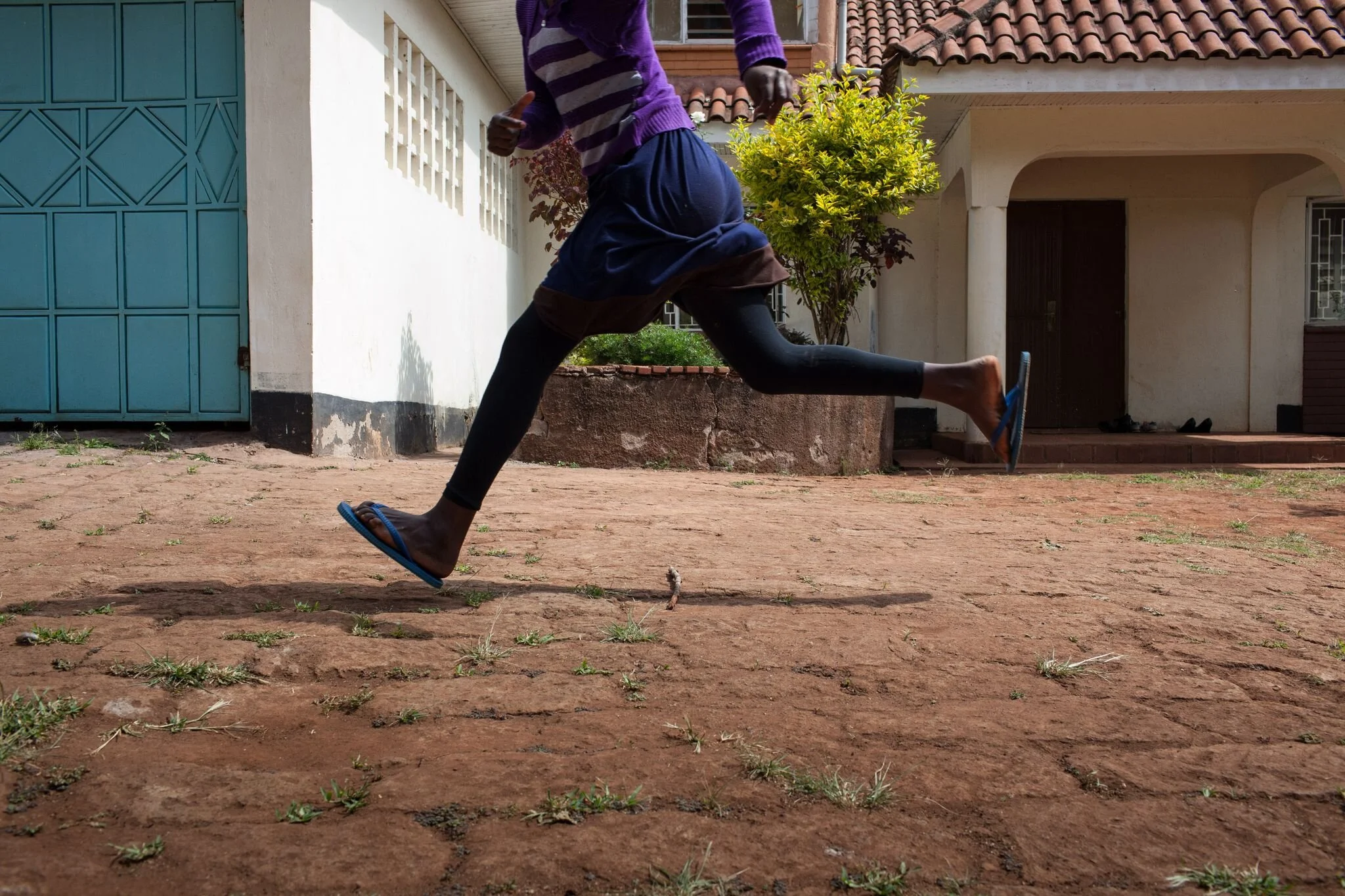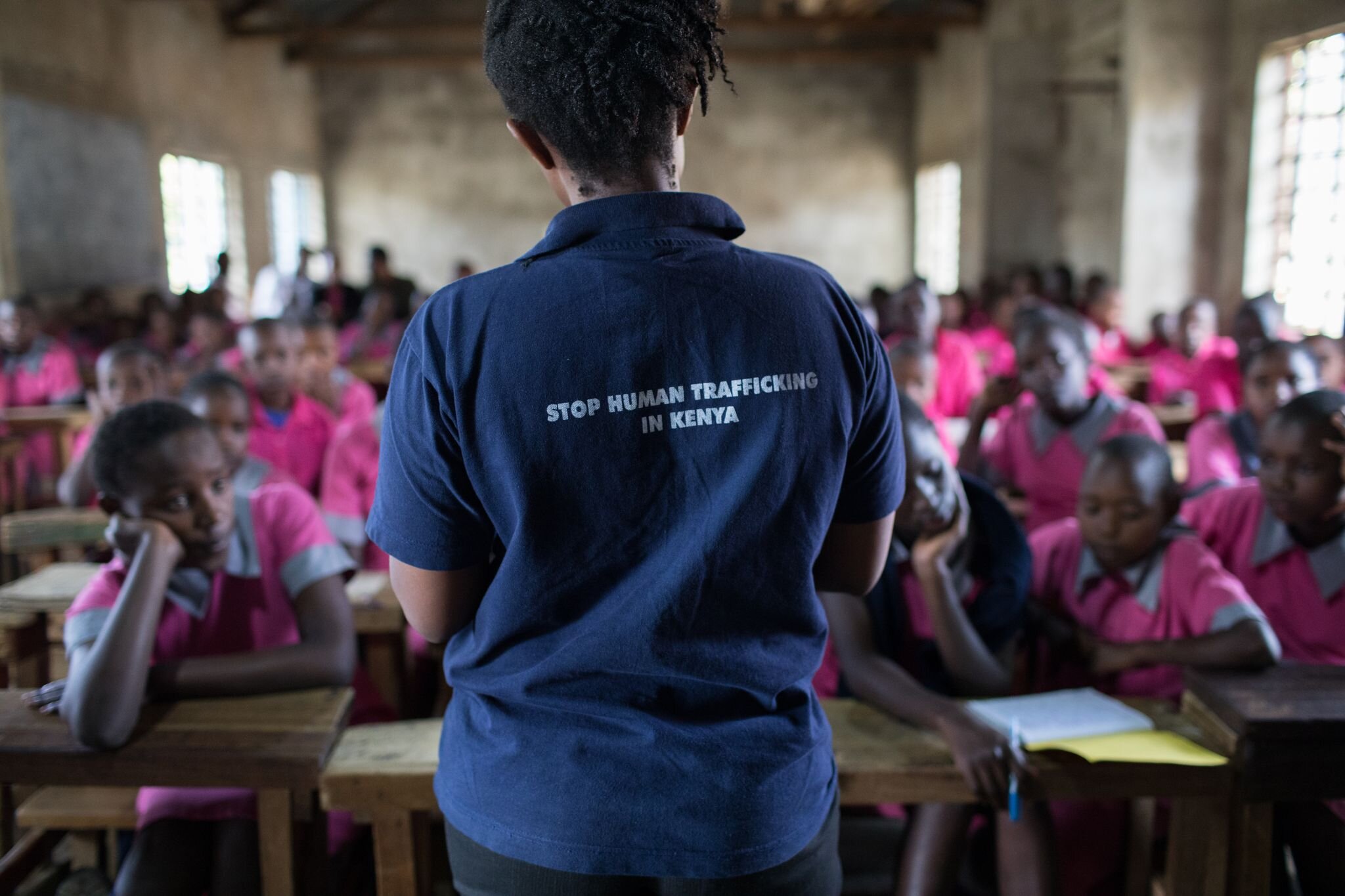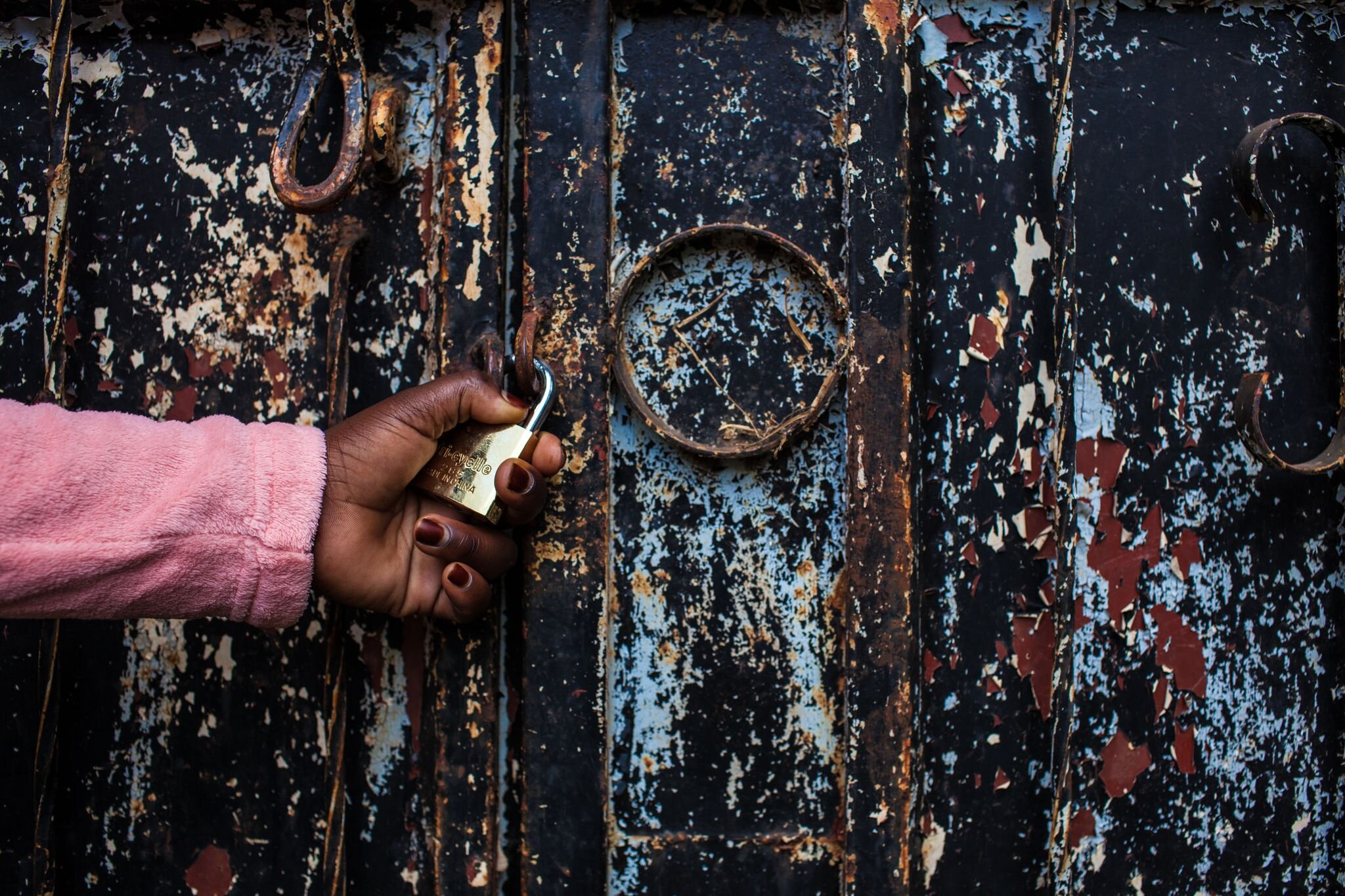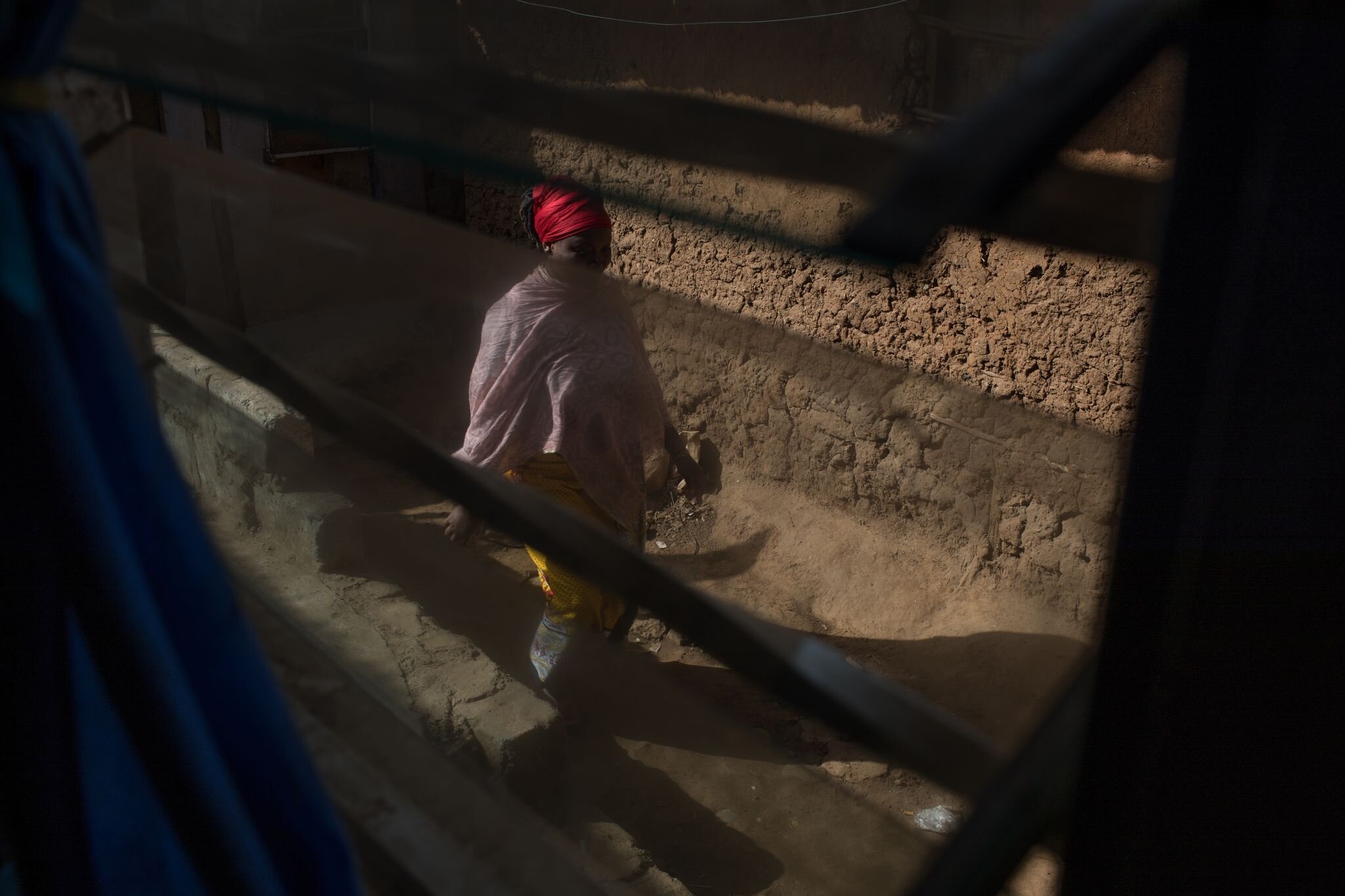Photo by Matilde Simas
HUMAN TRAFFICKING ADVOCATE SOPHIE OTIENDE ON ACCOUNTABILITY, POWER AND DISMANTLING OPPRESSIVE SYSTEMS AS STORYTELLERS
By Katrina Kirsch
Sophie Otiende is a feminist teacher, a survivor advocate for human trafficking and the first Kenyan to receive the Trafficking in Persons Report Hero award. For the past five years, she has been working with HAART Kenya, a Photographers Without Borders (PWB) partner organization that's dedicated to supporting survivors of human trafficking and raising awareness in order to eradicate this criminal activity.
Sophie was recently in conversation with PWB Founder Danielle Da Silva, where she shared the power of stories to create change, educate and empower. (You can watch the video highlight here). Below are edited excerpts from their discussion, which touched on the complex system of human trafficking, feminism in the African context, historical impacts of colonialism, capitalism and racism, and the power of storytelling to shape narratives and address injustices.
Danielle Da Silva: Can you enlighten us a little bit more on what constitutes is human trafficking and where it exists?
Sophie Otiende: Human trafficking is everywhere. The legal definition is very, very long, and it's different for an adult than for a child. Basically, for trafficking to occur, you have to find what we call the act – the means and the purpose. How did the person enter the situation? The means is how a person is controlled if they're an adult. And then the purpose is always for exploitation.
So if I'm targeting someone, I'm finding a way to control them. That could be through deception, kidnapping, coercion or grooming – and then I'm exploiting them. The exploitation can be labour, can be sex, can be for an organ, can be for different purposes.
A simplified definition is the sale of people for the purpose of exploitation. Literally, human trafficking is a business because, at the end of the day, it's a system that runs on profit.
Photo by Matilde Simas
Da Silva: It’s the second-largest illegal trade in the world. So how does that happen? How do you relate human trafficking to capitalism? And even colonialism and white supremacy?
Otiende: It's the whole concept of demand. We have the West constantly consuming and demanding food, so you're going to need people working in fields for long hours. In the past, families could produce food that was enough for villages to work, to eat, and to spend.
But now, all of us want strawberries. When it's not the season for it, someone has to pay a price for that demand. So we have to start questioning our lifestyle and whether all these things are worth it in the end because someone who doesn't have as much power or privilege as you is the one who's paying the price.
I mean the foundation of the world is white supremacy. So of course, it's the most vulnerable people, it's the darkest people who are going to pay the price. The majority of the people who are trafficked for forced labour, for anything, are black women and girls.
Photo by Matilde Simas
Da Silva: Can you tell us about the power of storytelling for good? How can we use that in a good way to support survivors or communities that are in need?
Otiende: Right now, most stories have been written by people who come in with a lot of privilege. We all come into every story with our bias, and it's extremely important to actually question that.
First of all, you have to identify the power that stories hold – to identify that as a storyteller, you have power. You have the ability to destroy and to build someone, and to open eyes. And it's easy for you to abuse it. So how do you hold yourself accountable for that power? And how do we create a system that actually wants you to be accountable?
Secondly, recognize that a story doesn't belong to you just because you're managing the tools for storytelling. So long as other people are involved, the story isn't yours. Storytelling is a collaborative process between you and the people who you're walking with, especially when you're working with survivors. Above all, it’s theirs.
Da Silva: What is the greatest teaching you have ever received?
Otiende: For me, the most important teaching that I've learned is from Audre Lorde. And it's the simple statement that the personal is political. There's nothing, absolutely nothing, I do as an individual that's not political. I'm responsible for the power that I have, and I'm responsible for how my power as an individual affects and builds a narrative.
I believe that my personal life is the first political statement. So the only way I'm going to change anything is by not being hypocritical and applying the very things I'm saying into my own life. When I say that people need to be empowered, it's not to be preachy. Let's not be people who are preaching to others and not doing it ourselves.
To watch Sophie’s entire interview, including a viewer question period, please consider becoming a PWB Member. As a Member, you'll be contributing to PWB’s social action initiatives and have full access to all Storytelling for Change webinars that feature notable photographer storytellers from around the world.








